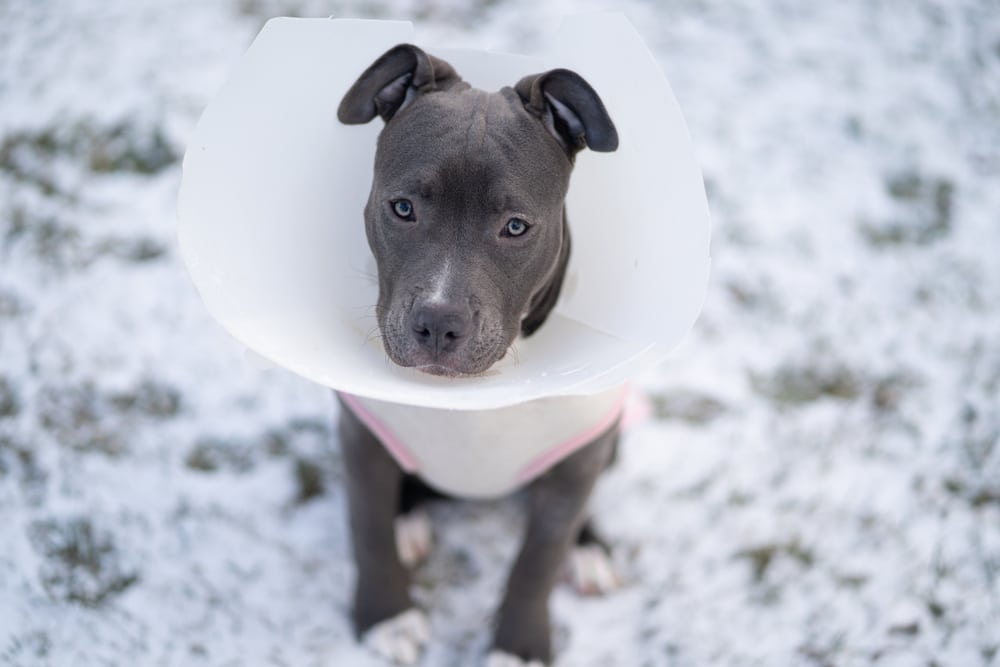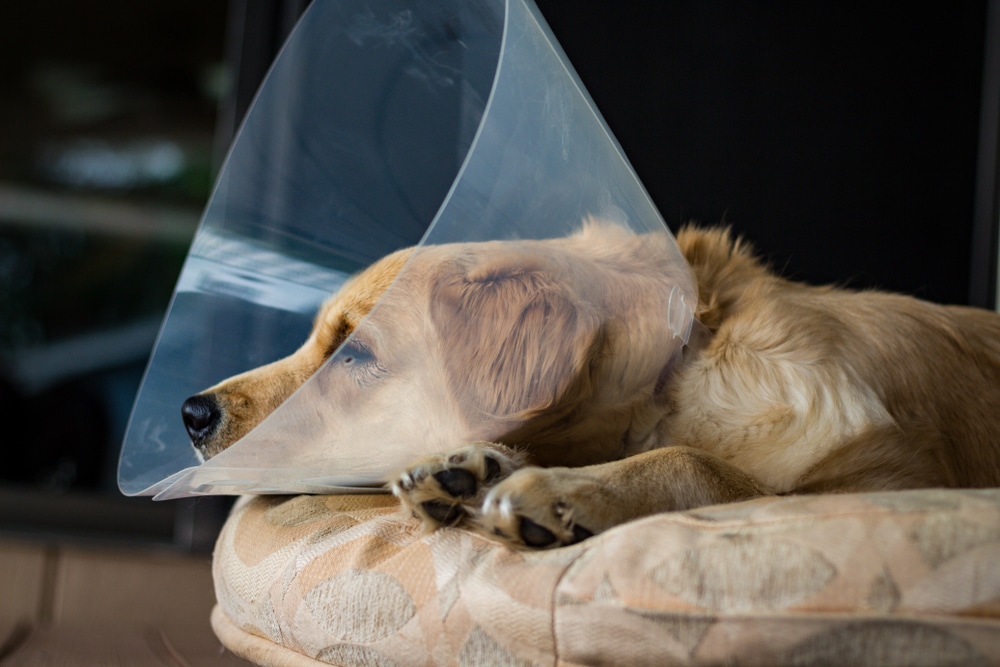One of the most responsible things dog owners can do for their pets is to spay or neuter them. Sterilizing your pets is a standard practice in the fight against pet overpopulation and lowering the number of sheltered and homeless dogs. So, many people ask, “How soon should I get my dogs spayed and neutered?”
When it comes to how soon to spay and neuter dogs, veterinarians commonly use the “standard six months of age” as a guideline. Later though it was proven dogs can be neutered and spayed at any age. Although there is a slightly higher risk of postoperative problems, mature dogs can also be neutered. Talk with your veterinarian to see what is the best choice for your dog.
Table of Contents
What Is Spaying And What Is Neutering?
During spaying, the veterinarian removes the female dog’s reproductive organs, which prevents your dog from becoming pregnant.
During neutering, the veterinarian surgically sterilizes your dog by removing the testicles.
The Benefits Of Spaying Or Neutering Your Dog

Unwanted dogs and pups crowd animal shelters around the nation. Spaying and neutering reduce how many litters there are overall. They also help lower the number of unwanted pets or strays.
Additionally, some operations offer certain health advantages that might help a dog live a healthier, longer life. They can also help possibly lessen behavioral problems.
Spaying
Spayed dogs are less likely to develop significant health issues like breast cancer and pyometra, a potentially fatal uterine infection.
If a vet says female dogs while they’re young, they won’t go into heat. Unspayed female dogs normally experience heat cycles every six months, lasting between 2 to 4 weeks.
Your female dog will release a bloody vaginal discharge while she is in heat. She may also act jittery, clingy, or jumpy.
Neutering
By neutering your dog at a young age, you can help avoid prostate and testicular cancer. Neutered male dogs are less prone to wander or attempt to flee the house in pursuit of females.
The less your dog roams, the safer it will be from conflicts with other males or even accidents with vehicles.
Male dogs that aren’t neutered are more prone to spray urine inside the house to mark their territory, mount other animals or people, and act aggressively toward other canines.
Therefore, early neutering could aid in the prevention of some aggression problems.
Also, any activity associated with mating instincts, such as humping, normally stops after neutering a male dog. This is not always the case though. One example includes age.
When To Spay Or Neuter Your Dog
Several factors can influence the timing of spaying and neutering – the gender, breed, size, animal’s living situation, health, and more. So, when choosing the ideal moment, there isn’t a time that’s “one size fits all.”
You can spay or neuter your dog at practically any age as long as they are healthy. However, most vets frequently fix puppies at ages six to nine months. Keep in mind that the sooner your vet completes these procedures the more straightforward they are for the vet to carry out and for the patient to recover from.
Owners can neuter adult dogs, but as well as overweight dogs, and dogs with health issues, doing so can have a somewhat higher risk of postoperative complications.
Breeds And Sizes Of Dogs
Owners should neuter small-breed dogs (under 45 pounds estimated body weight) at six months of age. Alternatively, owners should spay small-breed dogs before their first heat cycle (five to six months).
Owners should neuter large-breed dogs (estimated mature body weight greater than 45 pounds) between 9 and 15 months of age. This is because they stop growing then.
However, it’s interesting to note that different dog breeds and sizes mature at varied ages. Toy-breed dogs reach sexual maturity as early as six to nine months of age, in contrast to huge and giant breeds, which may take up to 18 months.
The last finding is that, in general, larger breeds of dogs may have been at greater risk for future health issues than small or toy breeds due to early spaying or neutering as they grow at a later age.
The ideal time to spay or neuter a dog should be tailored to each individual dog, especially if the dog is a huge or enormous breed, and should no longer be the conventional “six months of age” response many vets have used as a general rule of thumb throughout the years. Still, talk to your vet and see what options you have.
If you own a purebred dog, speaking with your breeder will enable you to learn crucial information. You should then speak with your veterinarian about your dog’s breed or breed type, sex, and any potential long-term medical issues.
Owners can neuter or spay a toy-breed puppy or tiny-breed puppy at six to nine months of age. However, owners will need to wait for large- or giant-breed dogs until they’re 12 to 18 months of age.
Spay And Neuter Surgery Possible Risks
By taking the following steps, dog owners can ensure their animals recover safely and comfortably after surgery.
Using a cone or other techniques, as advised by the veterinarian, help make sure the dog is unable to lick the location of its incision.
Make sure the incision is healing properly by checking it every day. If there is any redness, swelling, discharge, or offensive odor, call your veterinarian right away.
After surgery, owners shouldn’t bathe their dogs for at least 10 days.
Provide a quiet area inside for your pet to rest apart from other animals.
Following surgery, keep your pet from running and jumping for up to two weeks, or as long as your veterinarian recommends.
Final Words: How Soon Should I Get My Dogs Spayed And Neutered?
Additionally, it’s quite inexpensive to spay and neuter your animals. The cost of spaying or neutering your pet will be significantly less than the cost of raising a litter.
With today’s knowledge of the potential impacts of age at the time of operation on their future health, it is essential to have a thorough discussion with your veterinarian to establish what is best for your dog when deciding whether to spay or neuter them.
Many pet owners believe their female dogs and other animals must experience the joy of motherhood at least once. They also believe the male dogs will feel less manly after this type of surgery, but animals do not think like that.
So, are you looking to get your spay or neuter your dogs soon? Let us know your thoughts on this and what you plan to do in the comments below!
